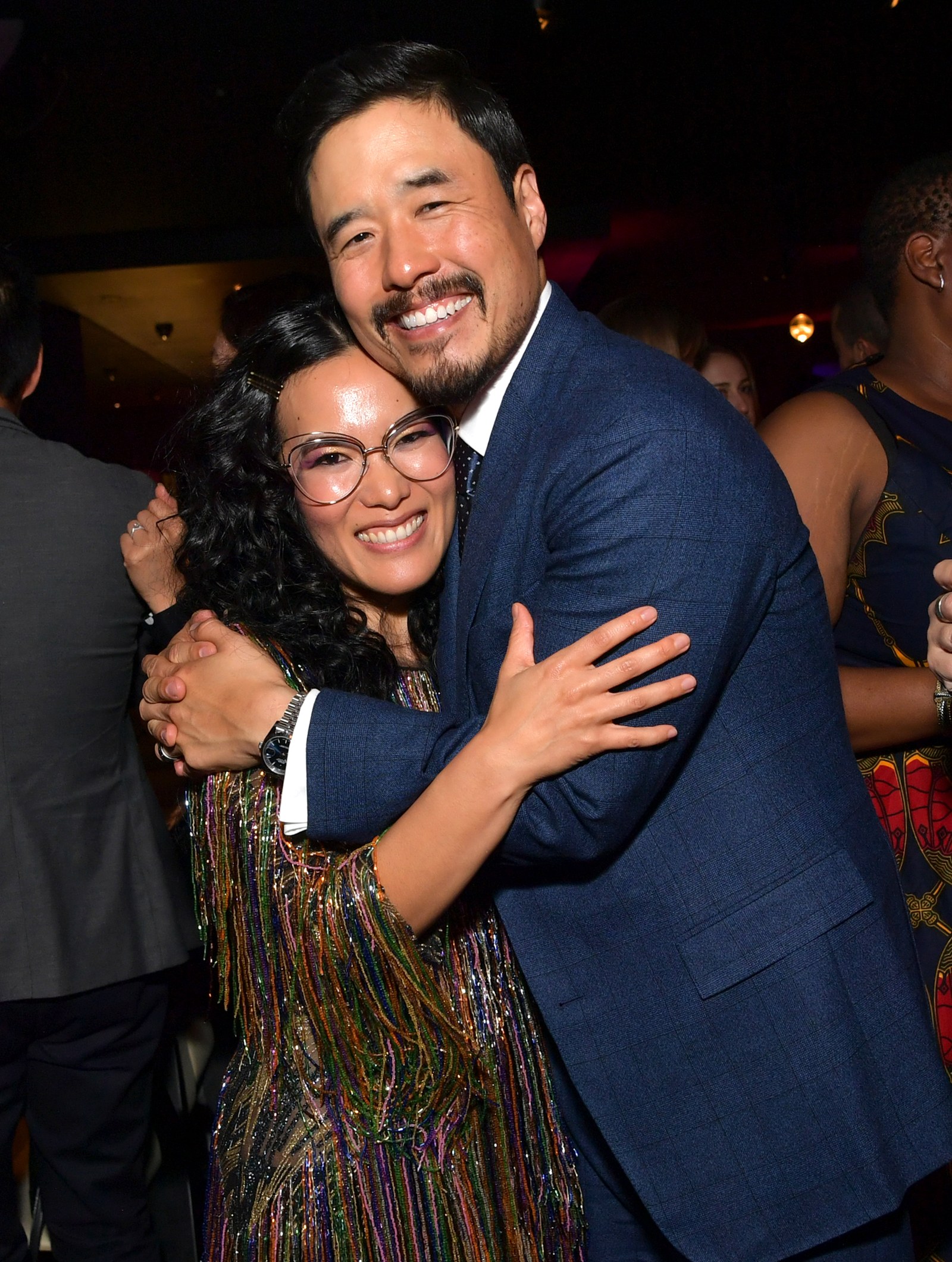Ali Wong and Randall Park on the Real-Life Things That Inspired Always Be My Maybe

Wong: When he called and proposed that we write a rom-com together, I thought—because at the time no one had known me at all for acting—that he meant he wanted me to write something with him for him to star in with somebody else. Which is perfectly normal. That seems like a rude thing, but people ask that kind of shit all the time. I thought he wanted to be in something with Emma Stone or something. And I would’ve done it! And then he clarified and was like, “I think it should be a romantic comedy for you and I to star in together.” We just got to it.
This story is so distinctly Asian American. I was sitting in a screening room next to another Asian reporter, and as soon as we saw the Spam on the plate in the first scene, we both gasped. I grew up not seeing myself on screen at all in pop culture, so it’s still surreal seeing two Asian people fall in love.
Wong: I wonder what it’s like for non-Asian people to see that. I keep hearing people from people who are Asian American who are so excited to see it, and I wonder what it’s like for [non-Asians].
Park: It’s like growing up watching When Harry Met Sally. I put myself in their shoes.
Wong: But like, when would you ever see another Asian American couple hook up?
Park: Never. That’s a good question. I wonder if it has any effect on non-Asians.
Wong: The effect is that there’s been this whole online discussion about Randall being a snack. And then there are debates on whether he’s a snack or a meal. So there’s a revelation amongst non-Asian people about something that I’ve known for a very long time: Asian-American men are super sexy. And Daniel [Dae Kim] and Randall are like 50.
Park: I’m 45!
When you were writing the script, did you add little Easter eggs for Asian Americans, or was the whole movie just very Asian because of you two writing it and Nahnatchka Khan directing it?
Park: We didn’t come in thinking of that. For us it was really about making a good movie—a good rom-com that came from a real place. I think that’s where those elements made their way in because they came from our experiences, like Ali growing up in the Bay Area. A lot of those details kind of came in as we were making the film and filling up the world. The little details people appreciate weren’t written in the script.
Wong: To me, Marcus’ character is very much a type of guy that I grew up with. A very Asian American dude who grew up in the Bay and lives at home well into his 30s because of gentrification and rent is so expensive in San Francisco. They have this artistic passion and they’re not that ambitious because they’re third generation. Their parents don’t have that crazy immigrant mentality. That’s something I have never seen on camera before, but that’s something I very much grew up with. These guys were so sexy and confident, but they’re good, you know? They’re satisfied and not watching for anything more. And his dad is his friend.
Yeah, you usually just see tiger moms and overbearing immigrant parents in pop culture…
Wong: Right, and you haven’t seen that kind of Asian dad before. My dad was born in the United States. He didn’t have any accent, he was very progressive, and he journaled. He’s really into self-reflection. I know a lot of dads like that, and I have always felt like it’s a shame that they weren’t on camera. This is not the Asian American rom-com. This is an Asian American rom com. That’s an Asian American dad. That’s an Asian American guy I haven’t seen before. And that’s very exciting to me.
In that opening scene, Marcus doesn’t want to bring leftover kimchi stew to school. He says no one wants to sit next to a thermos kid, which is the stinky lunchbox problem that I imagine a lot of Asian Americans feel going to school with something that’s not just PB&J. What made that important?

1 comment
I’m Asian American. I’m 86. When I was young and went to the movies, other kids had pop corn. My Mom packed corn on the cob for me.